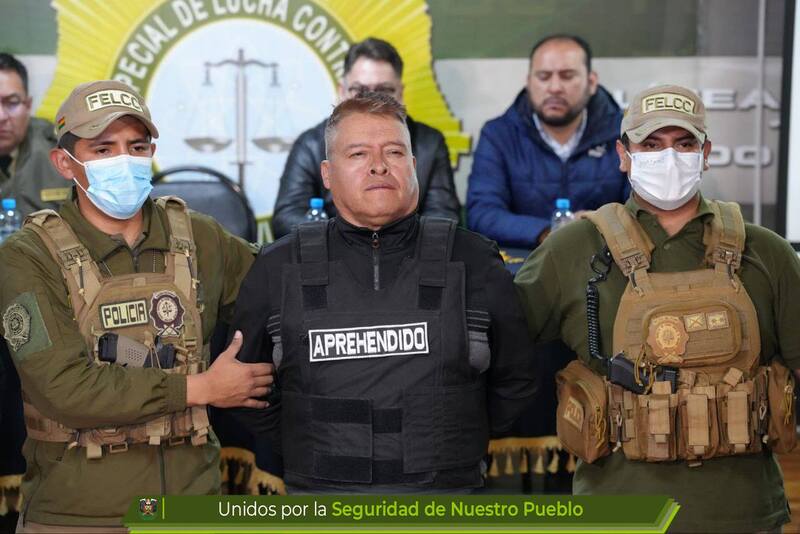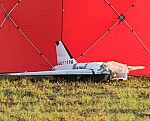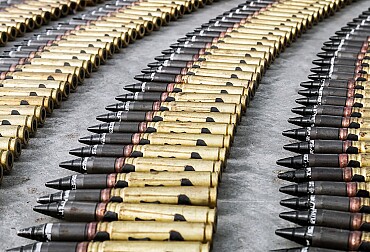The attempted coup in Bolivia has failed. The president ordered it, say the general and opponents
Bolivia has experienced an attempted military coup, however it was stopped in its early days. A country with a history of coups and revolutions witnessed the march of part of the army under General Juan José Zuñiga to the capital, where troops attempted to seize the presidential palace. However, even with the help of heavy equipment, they were unable to do so and the situation was soon taken over by the police in La Paz. Zuñiga was detained and claims that the soldiers on the streets were directly ordered by President Luis Arce. That he did so to boost his popularity is also claimed by his opponents. Arce denies it.
These were scenes that even the militant Bolivians themselves are not used to seeing in broad daylight in recent years. After midday, armored vehicles began circling Plaza Murillo in the center of the country's capital, La Paz, and generally increasing the military presence on the streets. Life in the capital came to a momentary halt as troops began marching on the adjacent presidential palace. Around 2:30 p.m., one of the transports began ramming into the gates of the complex, which it knocked down, and subsequently some of the soldiers rushed inside. There, too, there was a confrontation between the disgruntled by then former army commander Juan José Zuñiga and the 60-year-old President Luis Arco.

"When did you tell me about this?" Arce asked, also in front of the cameras, in an unprecedented meeting with the putschist leader. "I kept saying it, I kept saying it," Zuñiga replied, alluding to his claim that in a telephone conversation President Arce himself had instructed him to take to the streets. "You never warned me about this. You didn't say anything like that to me," Arce insisted. "Even my men are angry," Zuñiga responded. "We are angry that you are here," the Bolivian president tried to insist confidently. "So are we," the general continued to insist. "I am your captain, withdraw all your troops immediately, General," President Luis Arce finally declared to cheers from onlookers chanting that the country would not return to military dictatorship.
General Zuñiga insisted, even in front of reporters, that he was acting on direct orders from the president. However, after this exchange, he went back through the broken door into one of the bulletproof army vehicles and drove away. The police were deployed in force and soon controlled the central square of the capital and expelled the remaining soldiers. The situation seemed to calm down about as quickly as it had escalated before - the whole putsch started and ended within three hours. Shortly afterwards, the disgraced army leader was arrested, even in the presence of the country's interior minister, and the president and other members of the government congratulated each other on how the situation had been handled in an exemplary manner, appointing a new military command and ordering the rebel troops back to their barracks.
But the surprisingly smooth conduct of the coup, which in the eyes of a section of the public the heroic President finally managed to resolve with words, gives many observers reason to think that there may be some truth in the General's words. There is no doubt that President Luis Arce himself, whether he directed the action or not, has boosted his flagging popularity. Zuñiga was hastily removed from the head of the army the day before the revolt, which the opposition considers suspicious timing, and the country's president is therefore accused of autogolpe, the Spanish term for a feigned self-coup. "There is some evidence and statements that give us reason to think that this coup was premeditated and may involve the participation of the executive," Alejandro Reyes, a lawmaker from the opposition Civic Bloc, told the Observer.
"We will never allow weapons to be raised against the people. What the former army commander general (...) did was an uprising against the Bolivian people and an attack on democracy that cost the Bolivian people their blood. We will never allow that. Never," Luis Arce belligerently announced in a speech the day after the events, strongly rejecting any involvement.
Juan José Zuñiga was ordered to six months of preventive detention. Bolivia's top prosecutor announced that he was charged with terrorism, for which he faces 15 to 20 years, and armed rebellion, where the penalty is between five and 15 years. Along with him, the authorities announced the arrest of 20 others, including a former vice-admiral of the navy. In addition to them, some 200 military officers are believed to have taken part in the coup.
Until recently, coups were relatively common in Bolivia. Next year, the country will celebrate 200 years of independence from Spain and has seen 200 coups and revolutions in that history. After the tumultuous 1970s and 1980s, the last one that could be called that was, in part, an intervention by senior military officials five years ago. Following reports of electoral fraud by former President Evo Morales and the mass protests and violence that followed, even the top brass of the military opposed him, eventually leading to Morales' resignation and exile in Mexico. And it was against Morales that even Zúñiga stood before the current coup, saying he would have him arrested if he wanted to run in next year's elections, which by law Morales is not even allowed to do. Although he and Arce are not directly close friends, they are socialist party mates. The former head of state thus supported the current one in his actions against the putschists. In a move that Evo Morales may ultimately hope will allow him a political return to the head of the country.








